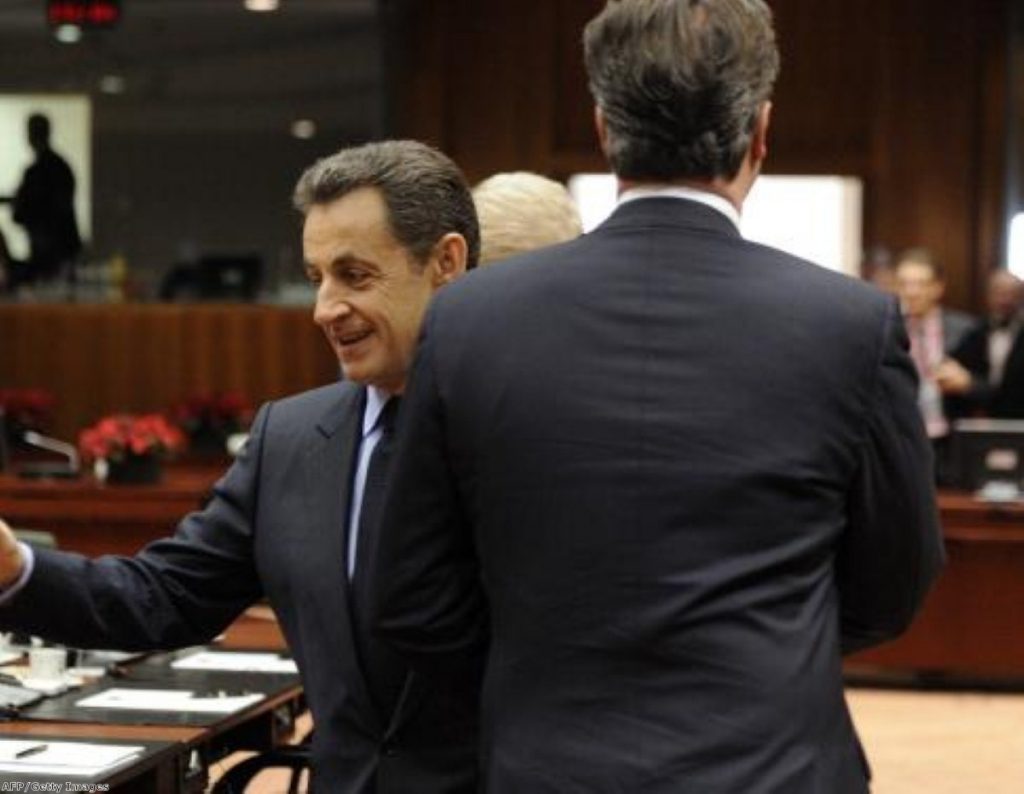Analysis: UK has avoided massive loss of sovereignty
Britain has avoided involvement in measures which would fundamentally undermine parliament's sovereignty. Here's a close look at what the '17-plus' countries are signing away.
By Alex Stevenson Follow @alex__stevenson
In the end, Britain's veto came over France's refusal to permit the inclusion of the "safeguards" David Cameron had ensured MPs would be insisted on earlier this week. The prime minister has repeatedly invoked the "national interest" as the definition of what he was seeking to defend. That is shorthand for the interests of the City of London.
As a result of that impasse Britain has avoided involvement in plans for "a reinforced architecture for economic and monetary union" which would have undoubtedly triggered a referendum. It goes far further than the Lisbon treaty in stripping its signatory countries of important aspects of their sovereignty. The closer you look at the "new deal" for the '17-plus' countries, the more you realise quite how fundamental the changes imposed by the new legal framework actually are.


At its heart is the 'fiscal rule', which actually is a set of rules designed to enforce severe budgetary discipline on all member states. No countries signing up to the fiscal rule will be permitted to increase their structural deficit above 0.5% of GDP. The existing three per cent ceiling on the overall deficit will continue to be imposed.
There is no wriggle room, as these measures will have to be enshrined in each country's constitutions. The European court of justice will be given the job of ensuring that this transition actually takes place.
Countries which do break the rules will be placed in a sinisterly named "economic partnership programme" tasked with getting them back on track. "Reinforced" measures to enforce the new compact will be introduced, and there is more planned later. "For the longer term," the agreement states, "we will continue to work on how to further deepen fiscal integration so as to better reflect our degree of interdependence".
The surrender of sovereignty being made today goes further than just these narrow rules, however. Under the terms of today's deal '17-plus' countries will give the EU permission to 'discuss and coordinate' major economic policy reforms any signatory country chooses to make. Had Britain signed up, it would have had to accept being part of a "common economic policy" with interference on a daily basis – as well as regular euro summits, which will be held at least twice a year.
All the countries signing up have effectively lost their veto over the use of emergency funds. A new procedure is being introduced which allows the European Central Bank and European Commission to go ahead with bailouts even if not all countries agree. Up to 15% can vote against the use of their funds and find they are used against their will.
None of these issues will solve the immediate issue at hand – the markets' collective lack of confidence in the eurozone and its countries' ability to pay their debts. So the package has come up with some "immediate" steps to "forcefully address current market tensions".
The European stability mechanism will be brought forward in July 2012. Extra funding for the IMF worth up to 200 billion euros will be confirmed within the next ten days.
There is also a tacit acceptance that more will need to be done. Next March the overall ceiling of the bailout fund, currently at 500 billion euros, will be reassessed.
The agreement says it will make more active use of "enhanced cooperation" in ways which don't undermine the single market, a goal which will continue to be critical to the UK.












